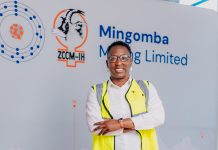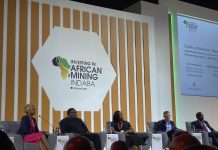What was your dream when you were at school? What did you want to become?
To be honest, when I went to school – this was in the former Rhodesia – career aspirations were limited to the professionals that we met, such as teachers or agricultural extension officers or nurses. I probably wanted to be a teacher. I don’t recall that I had any strong career aspirations.
Did you receive all your education in Zimbabwe?
No, I was educated in Zimbabwe up to bachelor’s degree level, which was in the teaching of Building Technology. Upon completion of my degree, I got a scholarship to go and study for a masters in Sweden. That was in the early years of Zimbabwe’s independence and during that time there was a lot of international support, of which I was a beneficiary. I was one of 15 Zimbabweans who got a scholarship to go and study abroad.
What was the most interesting aspect of studying in Sweden?
I found the Swedish to be very liberal people. They had no serious status consciousness. Sweden, for me, at that time, was a fairly classless society. And very accommodating, because you had a lot of people coming from different parts of the world, particularly from Africa.
Your move to mining wasn’t an immediate step. Explain those intervening years a bit more.
When I returned from Sweden, I went straight to the University of Zimbabwe and worked as a lecturer in the Faculty of Education, Department of Technical Education. I found myself in an environment where most of my colleagues were either known as doctor or professor. So, I decided that I needed to go back to school and get my doctorate. I was lucky enough to secure a Kellogg Foundation scholarship to go and study in the USA. I went to Iowa State University and enrolled in Applied Industrial Psychology. My intention was on return, I would hold different qualifications from those held by any of my colleagues from the Faculty of Education.

How did you end up at Kansanshi?
I left the university and went into consultancy. A lot of that consultancy work was capacity development for development organisations. I then moved from Zimbabwe and joined a Dutch NGO called SNV and went to Uganda. From there I came to Zambia and was appointed as the regional manager for the North West office of SNV. We became partners of Kansanshi mine to do part of their Corporate Social Responsibility work.
It’s almost like everything you had done until that day prepared you for what you’re doing now, because you had the business experience, and you had the educational experience.
Yes. In July 2012, I started at Kansanshi with the mandate to start the mine’s Education Support Programme. They wanted someone who understood the development sector, to come and champion the mine’s Corporate Social Responsibility work in the education sector.
What is the most rewarding aspect of your work, for you personally?
The most rewarding aspect of my work comes in two ways. Firstly, I’m a living example of what hard work can achieve from very humble beginnings. Your family background is not a prescription to your entire future. It might start you off badly, but if you believe in yourself and you have an unending desire to improve, you can go a very long way. And I’ve done that, and I spread that in any platform I find. I try to inspire people to go beyond what they thought they are capable of and they do that. Secondly, I’m the founder of the Kansanshi Education Quality Improvement Programme. That is going to be a part of my history.
I’m a living example of what hard work can achieve from very humble beginnings.
What is the most interesting thing about working in mining?
My team and I know that we are not miners by training. We know very little about the core business of mining. We are the face of the mine in its relationship with the community where the mine exists. I find that the community has its expectations of what the mine should do. I have always tried to say that the title of Corporate Social Responsibility is a misnomer. What we do is Corporate Social Investment. At a higher level, investing in the community in which we do business is one of our core business values. It is an FQM business imperative.
So, you don’t see it as responsibility, as you just said, it is investing with a certain purpose in mind?
Yes. We want this community to benefit from the mine, because we are extracting a resource we found here. It’s a resource that should therefore benefit the locals and the nation at large. And I try to help do that.
What are some of the challenges/frustrations that you deal with in your work in trying to affect the change that you would like to see?
The biggest challenge I face is trying to effect change in a system that I do not control or influence at national level. We are Solwezi-based in our operations. We are often swimming against the tide of how the education system in the country runs.
See also: Teaching leadership to headmasters
























